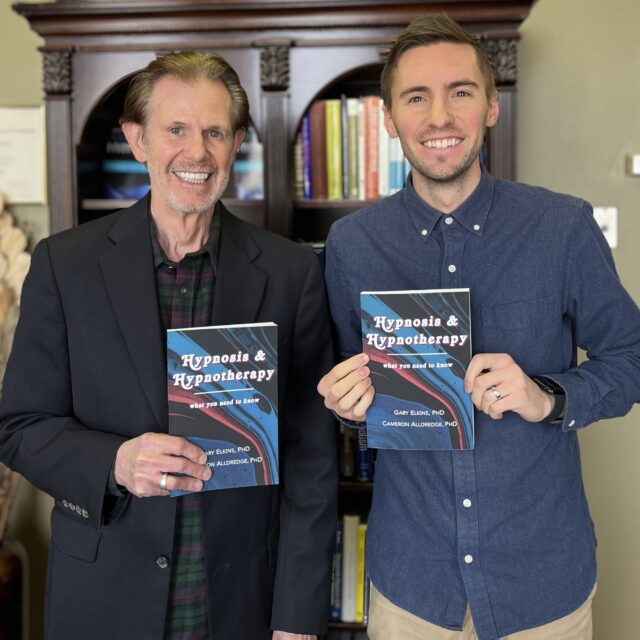By Ryan Otteson | Reporter
The Mind-Body Medicine Research Lab researches the connection between the human mind and physical health through various methods like hypnosis and mindfulness. The lab is led by Dr. Gary Elkins, a professor of psychology and neuroscience and the leading researcher and expert on the use of hypnotherapy for multiple medical problems.
American Fork, Utah, postdoctoral fellow Cameron Alldredge does research with Elkins, and he also has a private practice in which he mainly focuses on hypnosis.
“There isn’t any other lab that publishes and does as much hypnosis research as we do, so we do a lot of hypnosis research,” Alldredge said.
Some of the research the lab does includes app delivery of hypnosis. They have developed and are studying hypnosis apps for smoking cessation and hot flashes in postmenopausal women. The app used for smoking is called Finito, and the one for hot flashes is called Evia. There is also an app called Nerva that did not come from the Baylor lab, but is used for irritable bowel syndrome.
“They listen to these hypnosis audio recordings that help them guide them into some self-hypnosis,” Alldredge said.
According to Alldredge, the lab has done over a decade of research showing that hypnosis works very well for hot flashes.
“The North American Society of Menopause recommends hypnotherapy as a first line treatment,” Alldredge said. “This is a gold standard treatment, according to this society, because of the research that our lab has done.”
Fort Worth second year graduate student Katherine Scheffrahn is a research assistant in the lab. She is able to administer hypnosis for research purposes, but is not licensed to use it for therapy like Alldredge.
“Hypnosis and hypnotherapy is really, very effective for a multitude of issues,” Scheffrahn said. “So that surprised me when I first entered the lab because I only knew about it in certain contexts, but research has shown that it’s very effective for things such as smoking cessation.”
Both Alldredge and Scheffrahn discussed a concept called hypnotizability, which is the level to which someone can be hypnotized. It follows a bell curve.
“We don’t really use that term of somebody being susceptible, and that’s because hypnosis is not something that is done to you,” Alldredge said. “It’s something that you learn to experience.”
Usually when someone is less hypnotizable, it simply takes a few more sessions for the patient to get the results they are looking for. Even though some people are more easily hypnotized than others, Scheffrahn said that it is a misconception that a person can lose free will when experiencing hypnosis.
“When someone’s undergoing hypnosis, they have the absolute freedom to be able to snap out of there at any moment,” she said.



